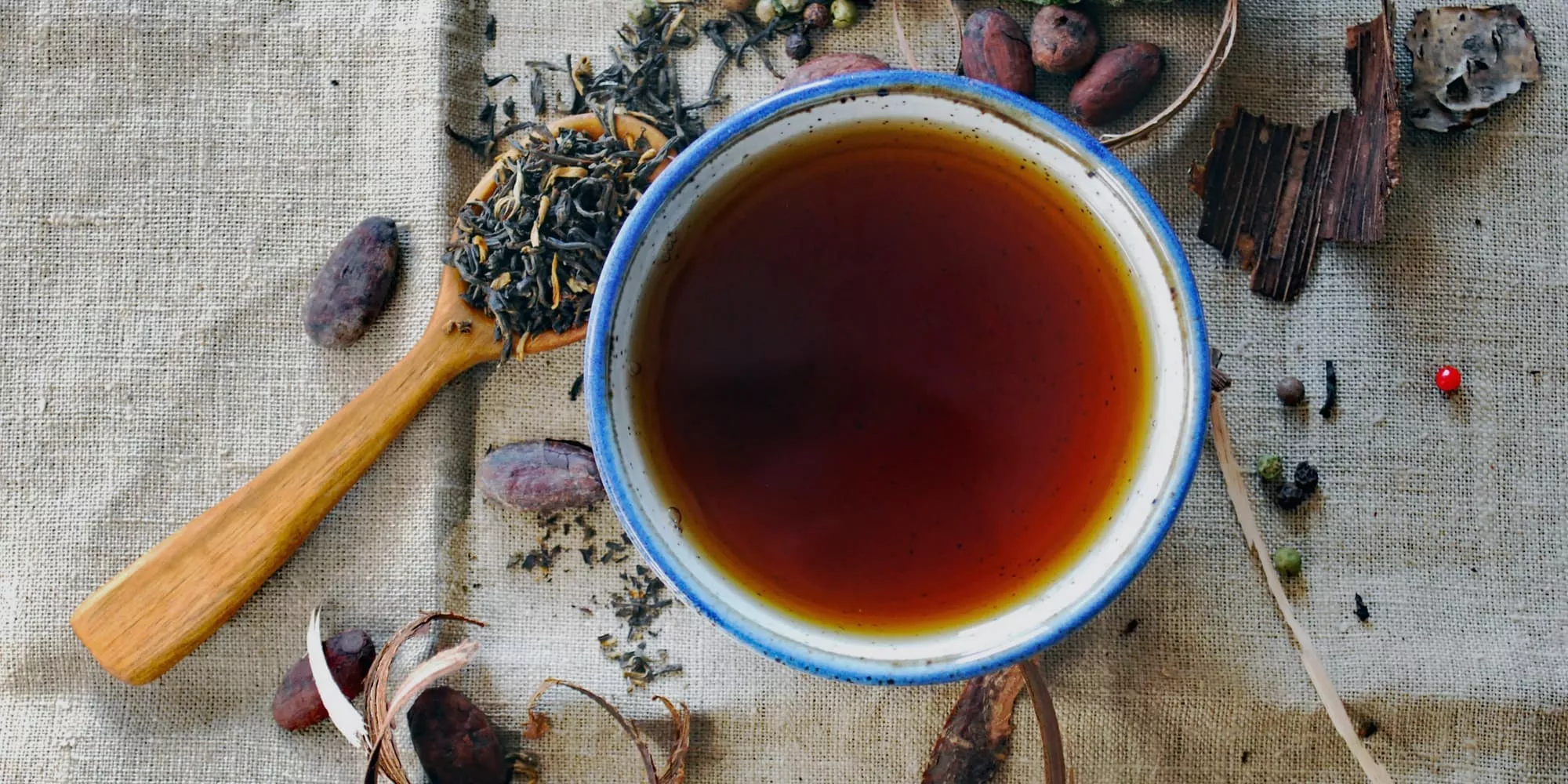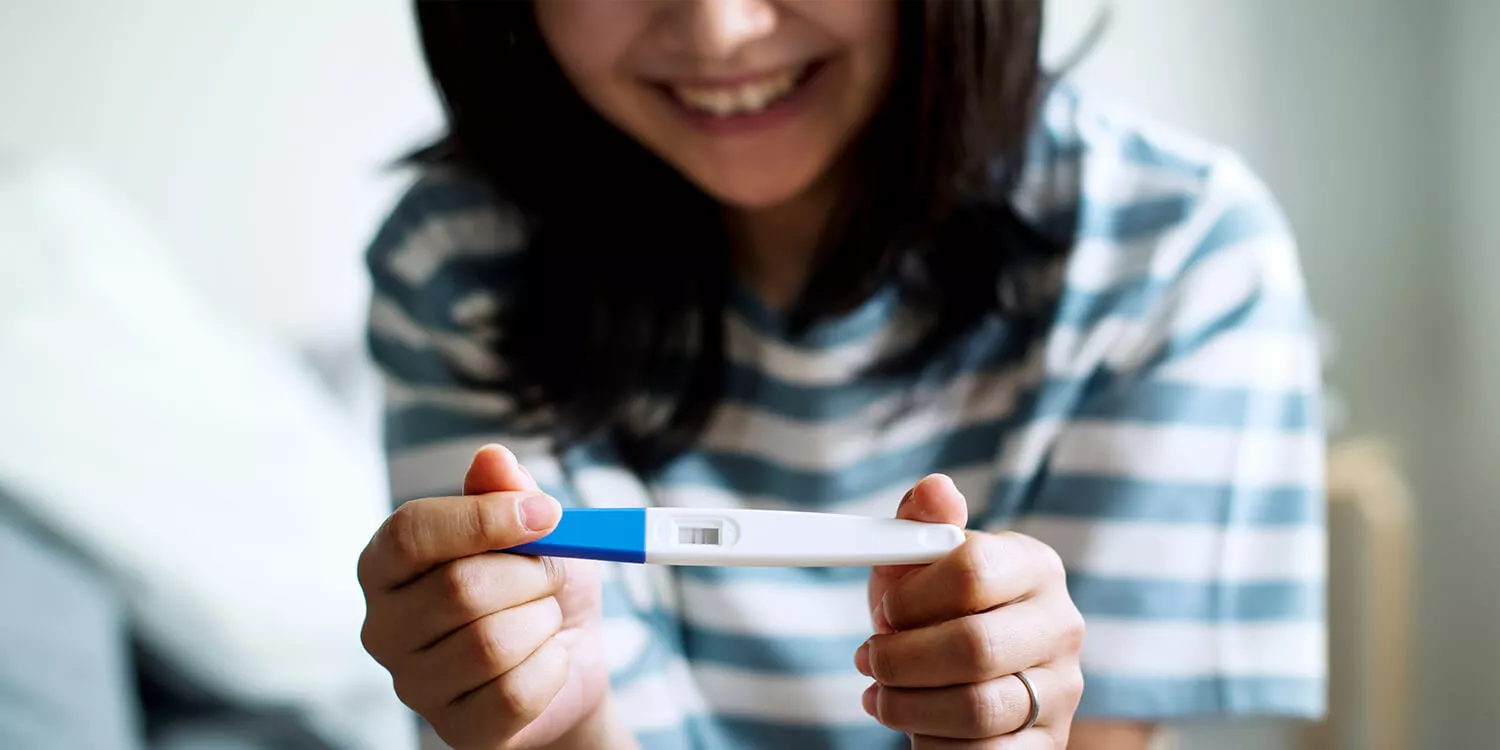Many women spend years trying to avoid an unplanned pregnancy – but when the desire for a baby becomes apparent, they usually want to avoid waiting very long. This raises a number of questions: when am I fertile? And how can I enhance my fertility? This article explains what Mother Nature has hidden in her bag of tricks and what you can actively do to make your dream of getting pregnant come true!
Do you know your cycle?
It sounds terribly banal, but in practice it can actually be something of a challenge: having sex at the right time. When you don't want to become pregnant, the fertile days can seem to go on forever. But when the opposite is true, the fertile days pass by in a flash!
When is a woman fertile?
The fact is that the egg can actually be fertilized over a maximum of a 24-hour period. The good news is that sperm can ideally survive in the vagina for up to 5 days. So, if you are hoping to get pregnant, the ideal time to have sex is up to three days before ovulation and one day afterwards. If you do not detect ovulation and if you are unable to identify any fertility symptoms (e.g., an increase in basal body temperature, increased libido, stretchy cervical mucus), an ovulation test can help to narrow down the window.
A range of devices can also help you track which days you’re fertile. Like ovulation tests, these measure the LH concentration in the morning urine.
Scheduled sex is too unromantic for you? It is usually assumed that sleeping together roughly every three days after your period will be sufficient for you to get pregnant within a few cycles. But can natural products give you a little boost?
How food promotes fertility – and hinders it
A balanced diet is always important, but even more so when you are trying to get pregnant – after all, vitamins and trace elements not only increase the chance of pregnancy and improve the quality of the sperm, they also have a preventive effect against diseases in the baby. Folic acid is very important for this reason, and may be recommended as a nutritional supplement even before pregnancy – it is best to check with your doctor whether this is advisable for you. Men should also avoid eating too much red and processed meat (such as sausages) in particular, because this seems to have a negative effect on sperm quality – as does being heavily overweight.
It also helps to avoid various unhealthy fats that are hidden in junk food, as well as dairy products with a full fat content such as whole milk, cream, or cream cheese.

The right foods for increased fertility
So one tip is to make sure your diet includes plenty of fresh fruit and a variety of vegetables, salad, nuts, whole grains, cereals such as millet or oatmeal, and eggs.
Fish and lean meat are also recommended. However, important macronutrient protein can also come from tofu, chickpeas, and lentils. Consider regional produce when selecting "superfoods" – for example, flax seeds and chia seeds contain the same valuable ingredients.
Healthy cycle teas for added assistance
Herbal teas are not only popular and effective remedies for the common cold, they can also have a positive influence on your cycle. There are special tea blends that promote ovulation and have a positive (sperm-friendly) effect on the cervical mucus in the vagina, and there are also teas that may support the subsequent implantation of the fertilized egg. Whichever type interests you, be sure to ask your doctor before testing them out! Herbal teas are traditionally thought of as a longer-term method for gently regulating the cycle that does not have side effects such as a sore throat.
Cycle tea for the first half of your cycle
The herbal blend is not only supposed to promote a good foundation and increase blood circulation in the uterus, it can also assist ovulation through phytohormones, which are similar to estrogen.
The tea is made from the following herbs in equal parts:
- Raspberry leaves
- Rosemary
- Mugwort
- Elderflower
- Sage
This tea is taken from day one of your cycle until ovulation (in other words up to day 14 with a textbook cycle).
Preparation:
You can have the tea blended in a pharmacy or in a specialist shop, for example 1.5 oz. of each herb. Then measure out 1-2 tablespoons of the herb mixture and add boiling water. Leave to infuse for 8-12 minutes. Drink 3 cups a day, spread over the course of the day.
Cycle tea for the second phase of your cycle:
The hormone progesterone dominates from ovulation onwards. It ensures that the lining of the uterus remains well built up and that the fertilized egg is able to implant. The second half of the cycle, or the "luteal phase", usually lasts between 10-16 days until menstrual bleeding begins – or is absent, in the case of pregnancy.
This cycle tea consists of herbs similar to progestins, which support the corpus luteum and have a purifying effect:
- Lady's mantle
- Yarrow
- Nettle
Preparation:
Same as above.
Hormone-like substances from Mother Nature
Cycle-related issues and associated fertility problems can also be treated with natural hormone-like substances. But beware: herbal remedies may also have consequences and side effects. Experimenting without seeking professional advice is not recommended. Be sure to consult a doctor before trying out any of these remedies!
For example, it is possible to take agnus castus, which is commonly prescribed for severe PMS and to relieve menstrual problems, including very heavy or irregular menstrual bleeding. Lady's mantle is also said to have a regulating effect on the menstrual cycle11. The active ingredient is available as an herb in teas and in drop form.
Say no to alcohol, cigarettes, and stress, and yes to sleep!
Alcohol and cigarettes damage fertility in both men and women. High nicotine consumption can also lead to an increased risk of miscarriages.
Avoid feelings of stress as much as you can, although this is obviously easier said than done. Work and little ones already on the scene can make this difficult. Nonetheless, always try to get plenty of sleep. Regular exercise also helps to reduce the negative effects of stress – and also promotes better sleep.
Photos: Unsplash
Sources:
Natürliche Familienplanung heute, Raith-Paula, Frank-Hermann, Freundl, Strowitzki, 4th edition 2008, Springer Medizin Verlag





